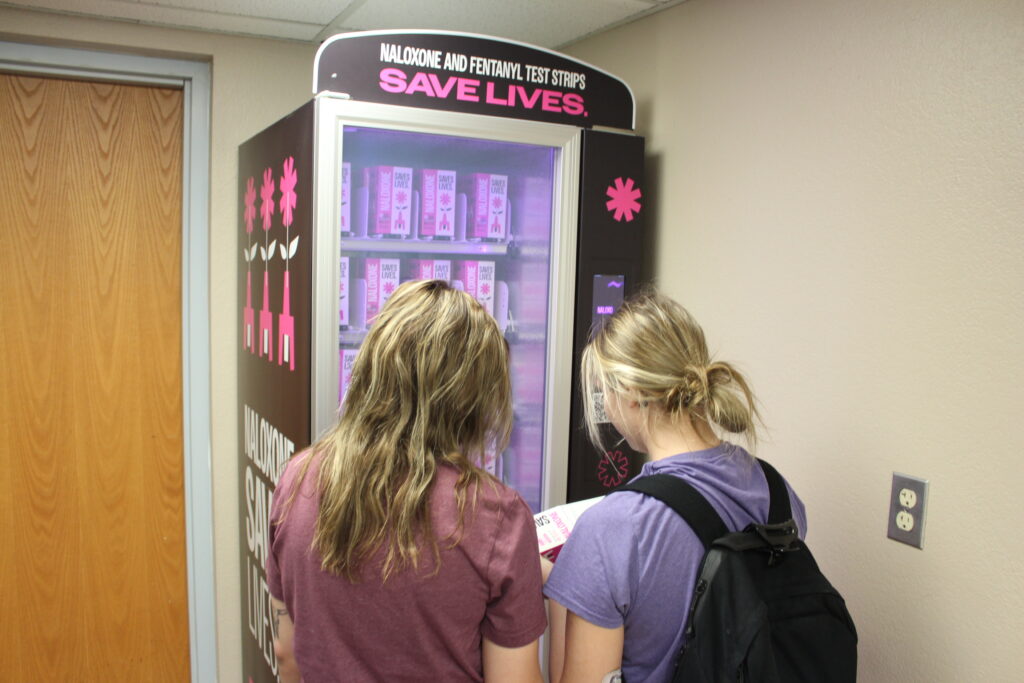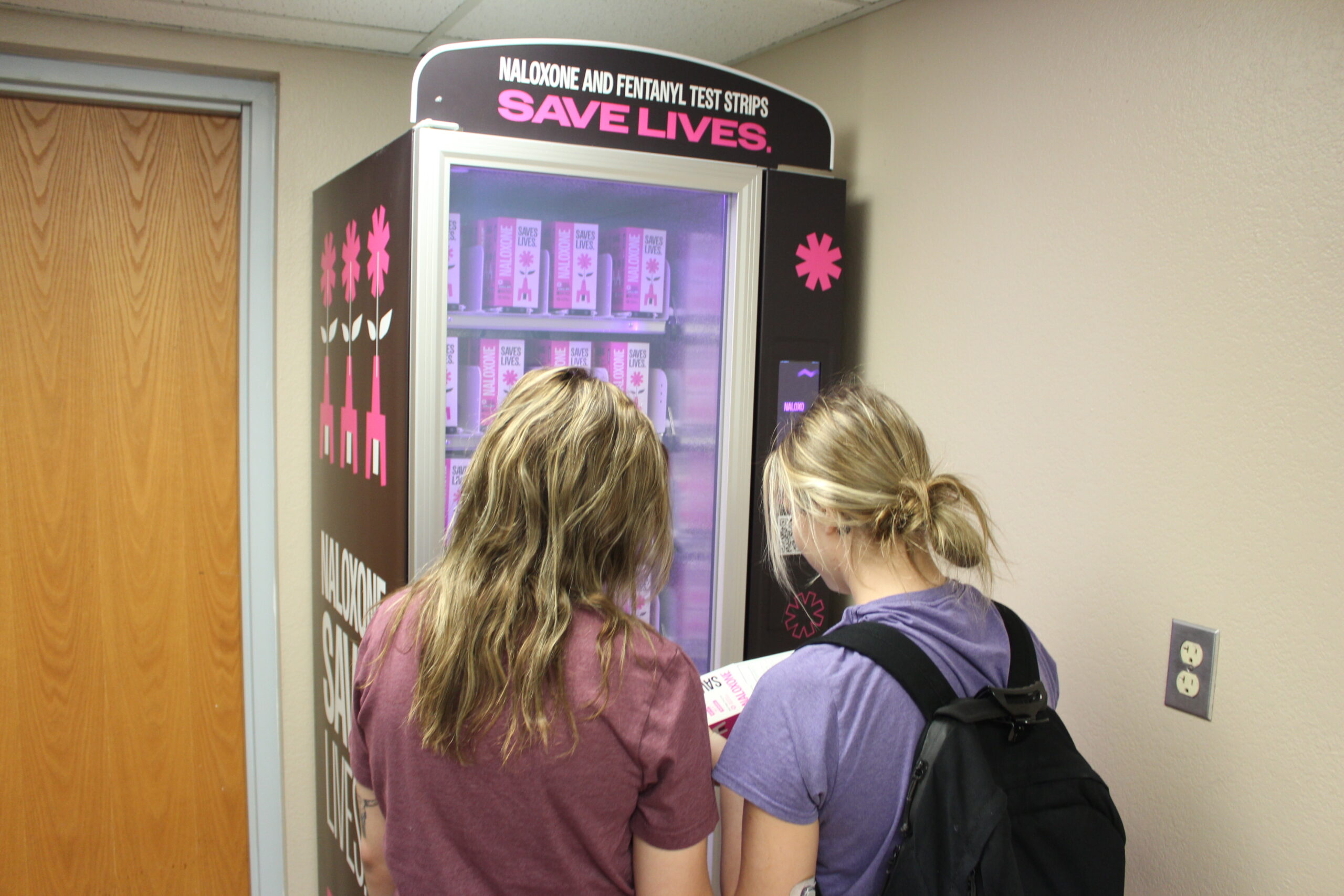By MALLORY PARUSZEWSKI
Senior Reporter
Harm Reduction Vending Machine has now been installed in the Northwestern Student Center.
The vending machines allow free Naloxone and Fentanyl test strips.
Northwestern Oklahoma State is the fourth university in Oklahoma to install one of these vending machines on its campus.
With the help of Ozge Yavuz, Kocaeli, junior majoring in psychology; Rosalee Hamill, prevention programs field representative at Oklahoma Department of mental health and substance abuse prevention services; Jadyn Chancey, freshman majoring in psychology who will be in charge of restocking the vending; and Taylor Wilson, licensed professional counselor and Director of Counseling and career services at Northwestern, the machine is installed and ready to be used.
The machine will hopefully help the continuing fight against opioid addiction, and other drug use at Northwestern Oklahoma State University.
Taylor Wilson has made it a mission of hers to get these vending machines on campus from the Department of Mental Health and Substance Abuse Services.
Wilson and Northwestern want these available to the campus community and the public to help save lives. Anyone can use the vending machines for free.
All they have to do is tap the touch screen provided on the machine, pick which product they want dispensed and enter a zip code, and then they should receive the free item.
A little more information about the strips coming from the vending machine. Naloxone is an over-the-counter opioid overdose reversal medication that has been used to save lives involving opioid drug abuse.
An affected person cannot use Naloxone on themselves, but a bystander or friend can use the medication to save a person’s life. The type of Naloxone in the vending machine is the intranasal spray, Narcan.
Fentanyl test strips are small strips of paper that detect fentanyl in all different kinds of drugs, including pills powder and injectables.
Fentanyl is a pain reliever that is 50 times stronger than heroin and 100 times stronger than morphine. It’s one of the main factors in fatal and non-fatal overdoses in the United States.
Along with the vending machine on campus, Wilson has mentioned other products that are available to the campus community and the public like medication, lockboxes and deteriorate drug deactivation pouches.
A disposable system, to avoid the medication getting into the wrong hands, they are locked up and stored out of sight and can only be accessed with the help of authority figures.
The vending machines are here to help anyone afraid to speak up or get help with any drug problems they have.


